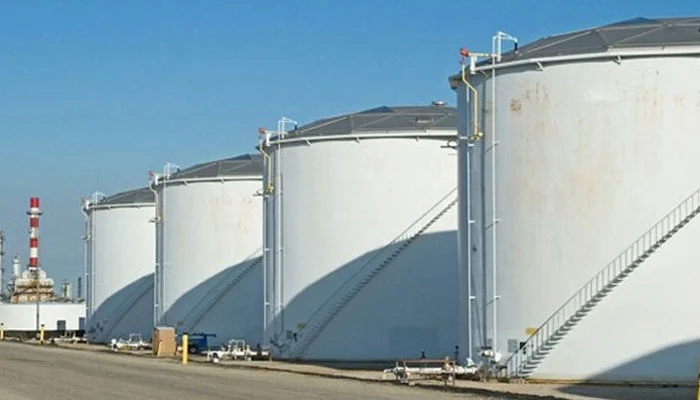The Pakistani federal government has made a significant decision to expand its strategic petroleum reserves in response to the evolving situation in the Middle East. This move is driven by the need to enhance fuel storage capacity, ensuring energy security in the face of regional uncertainties. According to reports from the Petroleum Division, the government aims to increase the duration for which petroleum products are stockpiled, with the strategic reserves being managed by the Pakistan State Oil (PSO).
Currently, Pakistan’s fuel storage facilities mandate petroleum companies to maintain reserves equivalent to 21 days of consumption. However, the government believes that extending the strategic petroleum reserves to a minimum of three months is imperative to safeguard national interests, especially in the context of volatile global energy markets and the geopolitical situation in the Middle East.
The decision to augment the strategic petroleum reserves reflects the government’s commitment to ensuring a steady supply of petroleum products in the country, even in the face of disruptions caused by international events. This strategic approach is aligned with Pakistan’s ambition to become more self-reliant in managing its energy resources.
The rationale behind this decision becomes even more pertinent when we consider the challenging circumstances in the Middle East. The region has historically been a major source of the world’s energy supply, with several key oil-producing nations situated there. Any instability or disruptions in the Middle East can have a direct impact on global energy prices and availability, affecting economies and energy security worldwide.
The increase in strategic petroleum reserves can act as a buffer against supply shocks and price fluctuations in the global oil market. By having a substantial stockpile of petroleum products, Pakistan can mitigate the impact of unforeseen events, such as supply disruptions, natural disasters, or geopolitical tensions.
It’s important to note that the exact volume of strategic reserves and the duration for which they will be maintained will be determined after a comprehensive assessment of the country’s domestic requirements and a thorough review of international best practices. The government is seeking the expertise of global energy experts to develop a framework that aligns with Pakistan’s specific needs.
The decision to build up strategic petroleum reserves is not unique to Pakistan. Many countries worldwide have recognized the importance of securing their energy supply and have invested in developing their strategic reserves over the years. These reserves not only serve as a safeguard against energy disruptions but also provide a level of control over domestic energy markets and prices.
The move to extend strategic petroleum reserves comes as part of a broader strategy to enhance energy security in Pakistan. The country has been actively exploring various avenues to diversify its energy sources, reduce its dependence on imported fuels, and develop its domestic energy infrastructure. These efforts are driven by the realization that energy security is a critical component of national security and economic stability.
The expansion of strategic petroleum reserves is an important step toward achieving energy security and ensuring the continuity of essential services, industries, and transportation in Pakistan. The move aligns with Pakistan’s efforts to assert its energy sovereignty and reduce vulnerability to external factors that can impact energy supply and prices.
Pakistan’s decision to increase its strategic petroleum reserves is a proactive response to the changing dynamics in the Middle East and the volatile nature of global energy markets. By extending the duration for which petroleum products are stockpiled and seeking expert guidance in developing a comprehensive framework, the government is taking significant steps to enhance energy security. These strategic reserves will not only provide a safety net against potential disruptions but also contribute to Pakistan’s long-term energy self-reliance and national security.



